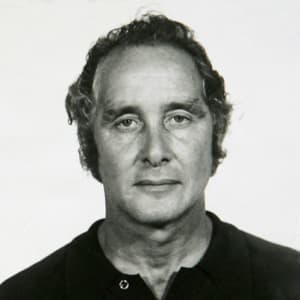
Ronnie Biggs
Involved in the “Great Train Robbery” of 1963, Ronnie Biggs became one of the world’s most famous fugitives. He avoided capture for more than 30 years, living as a fugitive in Brazil and Australia.
Synopsis
Born in London, England, in 1929, Ronnie Biggs spent time in jail for theft before joining the gang behind the 1963 Great Train Robbery, in which he and his cohorts stole roughly $7 million from an English mail train. He was sentenced to jail, but he escaped 15 months later. Biggs lived as a fugitive in Australia and Brazil before turning himself in to British authorities in 2001. He died in England on December 18, 2013 at the age of 84.
Background
After spending 30 years on the run, Ronnie Biggs became one of the world's most famous fugitives. Born Ronald Arthur Biggs on August 8, 1929, in London, England, Biggs was a member of the gang that stole roughly $7 million from an English mail train in 1963—an incident later nicknamed the "Great Train Robbery." Biggs played only a small role in the heist, but his flight from justice made him a legendary criminal.
A child during World War II, Biggs was evacuated from his London home. He spent two years living in countryside towns. Not long after his return to London, Biggs suffered a great loss when his mother died of an ulcer. Now a teenager, Biggs started getting into trouble, having several run-ins with the law for petty theft.
In 1947, Ronnie Biggs joined the Royal Air Force. Two years later, he got into trouble with police and the military authorities. Dishonorably discharged for theft and other crime, Biggs received a short prison sentence for stealing a car. More criminal exploits followed, with Biggs ending up sentenced to more than three years in prison for robbery.
For much of the 1950s, Biggs cycled through the British criminal-justice system on numerous theft-related charges. He made friends with Bruce Reynolds, the future mastermind behind the Great Train Robbery, during this time. In 1960, Biggs reportedly pledged to go straight after marrying his girlfriend Charmian Powell. He started a construction business with a friend, but he couldn't make ends meet. Biggs turned to Reynolds for a loan, but Reynolds invited him to join in a robbery instead.
'Heist of the Century'
On August 8, 1963, a gang of 15 men, including Reynolds and Biggs, committed what has been called "the heist of the century." They robbed a Glasgow-to-London mail train of the U.S. equivalent of $7 million in untraceable banknotes. The gang stopped the train in a remote area and trucked out their spoils. A member of the train crew was badly injured in the robbery. Like most of the robbers, Biggs was later arrested.
Sentenced to 30 years in prison in 1964, Biggs spent only 15 months behind bars. He escaped from Wandsworth Prison by scaling a 25- or 30-foot wall. On the run, Biggs made his way to France, where he had plastic surgery to hide his identity, and later traveled to Australia under a false name. There he reunited with his wife and their two sons. They even welcomed a third son during their time in exile.
By October 1969, however, the British police were closing in on Biggs. However, he was one step ahead of the authorities and eventually found his way to Brazil. In 1974, Scotland Yard investigator Jack Slipper traveled to Rio de Janeiro to apprehend Biggs, but he had to leave empty-handed. Brazilian authorities refused to extradite Biggs because he had gotten his girlfriend pregnant. They had no interest in expelling the father of a future Brazilian.
Capitalizing on His Notoriety
Seemingly free, Biggs started to capitalize on his notoriety. He gave interviews and appeared in advertising campaigns. In 1978, Biggs even recorded a song, "No One Is Innocent," with legendary punk rockers the Sex Pistols. He later held special barbecues where he charged tourists a fee to eat with him and have their photo taken with this infamous fugitive. Biggs also sold a T-shirt that read: "I went to Rio and met Ronnie Biggs … honest." In 1994, he released his best-selling autobiography, Odd Man Out.
Biggs survived two more attempts to bring him back to face justice before deciding to return voluntarily. In 2001, he flew back to England, where he was taken into custody. By this time, he had suffered a series of strokes and his health was in decline. Biggs told the press that he came back because his last wish was "to walk into a Margate pub as an Englishman and buy a pint of bitter." Others speculated that he had come home for free health care.
Imprisonment & Death
In all, Biggs had spent 13,068 days on the run. The authorities soon made sure that he wasn't going anywhere. Biggs went to prison until 2009. At the time, he was given a compassionate release because he was in poor health, unable to walk or talk. Biggs gave a press conference two years later to promote his new book, Odd Man Out: The Last Straw. He communicated by writing on a small chalkboard, telling the press that he expected to be remembered as a "lovable rogue." The court of public opinion may come up with another verdict, however. Some, including English justice minister Jack Straw, see him as an unrepentant criminal. The charismatic criminal Ronald Biggs died on December 18, 2013 at the age of 84 in a nursing home in London.



